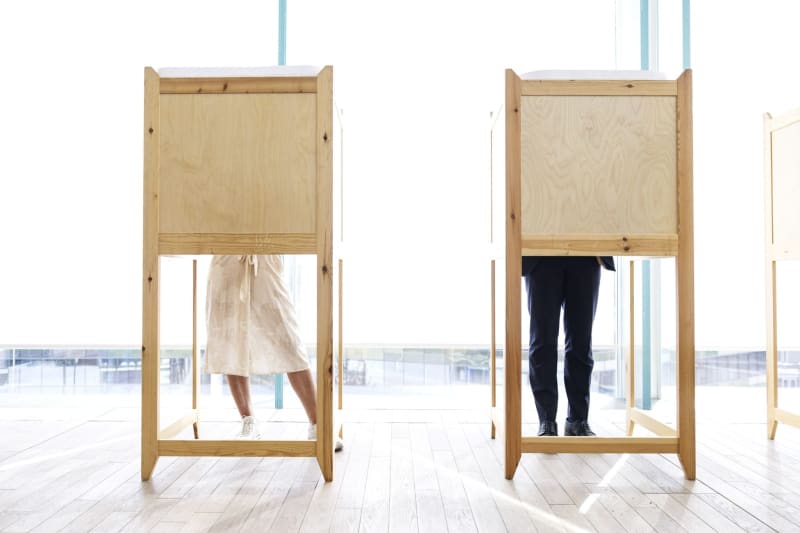Hundreds of millions of people in the 27 countries of the European Union vote in the European Parliament elections.
These are the key issues that influence voters’ decisions.
The Russian invasion of Ukraine
Russian President Vladimir Putin shattered the post-Cold War security consensus in Europe with his large-scale invasion of Ukraine in February 2022.
In response to the invasion, the EU and the West imposed multiple rounds of sanctions on Russia and mobilized billions of euros in financial and military aid for Ukraine.
Economic and military support for Ukraine is still popular in the EU, according to a Eurobarometer survey about three months ago, with public opinion at 70% in favor of financial aid and 60% in favor of weapons.
Receiving people who have fled war – more than four million of them within the EU – is also a popular policy, with 83% in favor.
Another important consequence of the war is that decades of cuts in defense budgets in the EU have been highlighted. EU countries, especially Germany, have substantially increased their spending in response to the Russian attack.
An EU-wide survey by parliament in April found that 31% of the public want defense and security to be addressed during the election campaign.
Cost of living
The economic fallout from Ukraine’s war on energy and food prices in recent years has been enormous, compounding the shock of the Covid-19 pandemic on state coffers and fueling inflation.
About 31% of people polled three months before the elections want the EU to support their national economy, while 33% of people want the EU to tackle poverty.
The European Central Bank (ECB) ended years of zero and negative interest rates in July 2022 to reduce inflation, which had risen to record levels.
There have been ten consecutive rate hikes, putting pressure on borrowers, while high inflation has eaten away at people’s savings.
Inflation is now forecast to fall to 2.7% by 2024, but despite the improvement, voters are still concerned about the cost of living. Food prices are high on the list: to give an example, in September 2023 the price of olive oil was 75% higher than in January 2021.
Rents are also rising in the block. Between the last quarter of 2022 and 2023, rents in the EU increased by 3.0%.
Climate change
In the 2019 European Parliament elections, the centre-left and centre-right lost votes to liberals, the far right and parties campaigning for stricter climate and environmental policies.
This resulted in the EU pursuing major climate initiatives, including the European Climate Law in 2021, which made the bloc’s target of net zero greenhouse gas emissions by 2050 legally binding.
While the public still wants action on climate – with support for this at 27% according to Eurobarometer polls – parties may be reluctant to commit to new climate change policies as voters prioritize the economy and defense .
The counter-reaction to environmental policy that is clearly visible in the farmer-citizen movement in the Netherlands and the large demonstrations by farmers elsewhere so far in 2024 also show the political risks parties face in the run-up to the elections.
Migration
Public concern about migrants and refugees seeking asylum is a persistently polarizing issue in European elections and shapes public attitudes towards immigration.
Public opinion polls calling for tackling migration and asylum in the European election average across the EU at 24%, and are highest in Malta, the Netherlands and Ireland at 50%, 48% and 42%.
Nearly 380,000 people crossed EU borders without valid papers in 2023, the highest number since 2016, according to EU border agency Frontex.
Asylum applications usually follow such arrivals and subsequently the number of applications in the EU is at its highest level in seven years.
More than 1.14 million people have submitted applications in 2023, the highest number since the 2015-2016 refugee crisis, the European Union Asylum Agency (EUAA) reports.
The bloc is also hosting 4.2 million people fleeing war in Ukraine under a separate EU emergency programme.
Centre-left and centre-right parties have emphasized in their campaigns a far-reaching reform of the bloc’s migration rules, the so-called EU Asylum and Migration Pact.
But far-right nationalist parties have seized on the issue in their campaigns, saying it will not solve the problem.
France’s far-right National Rally, led by Jordan Bardella, has heavily criticized the migration pact and called on the French public to vote against President Emmanuel Macron, who supported the deal, in the upcoming elections.
Extremely right
The rise of far-right parties in the polls has become an election issue in itself, with other mainstream parties regularly warning in their campaigns about voting for their rivals.
However, the far right is not homogeneous and it is not clear whether the parties share enough common ground on all issues to actually work together within any of the European Parliament’s political groupings.
For example, the Identity and Democracy (ID) group recently expelled the German Alternative for Germany (AfD), partly because of controversial statements made by the AfD’s top candidate in the elections.







